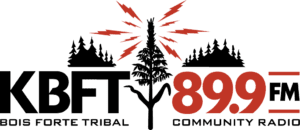Indianz.Com Video: ‘We have truly left our Native people behind’: Sen. Lisa Murkowski (R-Alaska)
President Donald Trump’s pick to lead the Department of Health and Human Services (HHS) is promising to create a new tribal position in Washington, D.C., amid a crucial vacancy in the cabinet-level agency.
At his second confirmation hearing on Thursday, Robert F. Kennedy Jr. expanded on comments he made a day earlier about his Indian Country agenda.
He told Sen. Lisa Murkowski (R-Alaska), the new leader of the Senate Committee on Indian Affairs, that he will elevate tribal issues if he is confirmed as Secretary of Health and Human Services.
“I’m going to bring in a Native at the Assistant Secretary level,” Kennedy said at his hearing before the Senate Committee on Health, Education, Labor and Pensions.
“I’d like to get him actually designated as an Assistant Secretary for the first time in American history, to ensure all of the decisions that we make in our agency are conscious of the impacts of on the first nations,” Kennedy added.
Kennedy first brought up the Assistant Secretary idea a day earlier, while committing to Sen. Ben Ray Luján (D-New Mexico) that he would “do everything” possible to ensure Native people are included in clinical trials for new drugs and medical devices. He said the new tribal position would be housed in the “central office” at HHS.
“All the major decisions in my office … he — or an interviewed candidate, a very, very good candidate — will have direct impact on all the major offices,” Kennedy said on Wednesday.
Indianz.Com Video: ‘These programs matter’: Sen. Ben Ray Luján (D-New Mexico)
On both occasions, Kennedy referred to the potential holder of the Native affairs job using the “he” pronoun, with his answer on Thursday being more strongly worded than the response a day prior. And both times marked the only instances in which the nominee talked about his dealings with American Indians and Alaska Natives.
“I spent 20 percent of my career working on Native issues,” Kennedy told Murkowski on Thursday, repeating word-for-word what he told Luján on Wednesday.
Despite the consistency, policy experts in the nation’s capital — including those in regular contact with key members of the U.S. Congress — told Indianz.Com that they unaware of Kennedy’s proposal until he brought it up during his confirmation hearings. He didn’t mention the Native affairs position in talks with Senators as recently as last week, according to one person with direct knowledge of the meetings on Capitol Hill.
But the idea of elevating Native issues at HHS goes back decades. During the 1990s, the late Sen. John McCain (R-Arizona), a former chair and vice chair of the Senate Committee on Indian Affairs, championed legislation to designate the Director of the Indian Health Service (IHS) as an Assistant Secretary.
The proposal resurfaced during debate on the Affordable Care Act more than a decade ago. The 2010 law, which Trump has repeatedly vowed in some manner to repeal, contains a permanent reauthorization of the Indian Health Care Improvement Act but did not include language elevating the IHS position to an Assistant Secretary.
On Friday, the legislative route was revived — and in a bipartisan fashion. Rep. Greg Stanton (D-Arizona) introduced the Stronger Engagement for Indian Health Needs Act with Rep. David Joyce (R-Ohio) as an original co-sponsor of H.R.741.
“The federal government has a trust obligation to provide quality health care to Tribal members, care that best fits their cultural and health needs,” Stanton said in a news release. “Our bill does what should have been done years ago—elevates and centers native voices when it comes to making federal policy that affects American Indians and Alaska Natives.”
“By elevating the Indian Health Service Director position to Assistant Secretary for Indian Health within the U.S. Department of Health and Human Services, we are making sure tribal communities are in a greater position to advocate for their healthcare needs in the federal government,” said Joyce. “This bipartisan legislation represents an important step as we seek to fulfill the federal government’s sacred trust and treaty obligations to American Indians and Alaska Natives.”
Tribal communities face too many barriers in accessing quality healthcare, and it needs to change.
I introduced the Stronger Engagement for Indian Health Needs Act to make sure these communities will have well-positioned advocates at HHS going forward. pic.twitter.com/keUL67BnCZ
— Dave Joyce (@RepDaveJoyce) January 31, 2025
The National Congress of American Indians (NCAI), the National Indian Health Board (NIHB) and the National Council of Urban Indian Health (NCUIH) are endorsing the bill, according to the release. The three organizations also supported the measure when Stanton and Joyce brought it up during the last session of Congress.
“Representation at the highest levels of government not only reaffirms the federal trust responsibility with respect to Indian health care, but, as we have seen time and again, it is also critical to ensuring that the federal government effectively serves the broad and diverse needs of Indian Country,” said NCAI President Mark Macarro, who serves as chair of his tribal nation, the Pechanga Band of Indians.
“The elevation of the IHS Director to Assistant Secretary will uplift our voices in the Administration and is a critical step in improving health outcomes in Indian Country,” said Walter Murillo, a citizen of the Choctaw Nation who serves as president of the board of NCUIH, which represents urban Indian providers across the country.
During the 118th Congress, the Stronger Engagement for Indian Health Needs Act did not gain much traction in the U.S. House of Representatives. No companion version was introduced in the U.S. Senate in the same session.
But the legislation, along with Kennedy’s pledge, comes at a crucial time for Indian Country. The most recent leader of the IHS left the position on January 17, only three days before Trump became the 47th president of the United States.
“As we look to the future, I have no doubt that the Indian Health Service will continue to move forward with resilience, innovation, and unparalleled commitment to improving Native health and strengthening Tribal sovereignty,” Roselyn Tso, a citizen of the Navajo Nation who began working for the IHS in 1984, said in a farewell message on her final day in office.
The IHS released its Strategic Plan for Fiscal Years 2025-2029, describing what the agency hopes to achieve over the next 5 years and aiming to improve agency operations, strengthen relationships, and delivery quality health care to tribal communities: https://t.co/LIPDGE0Vmz pic.twitter.com/bbNdCJahri
— Indian Health Service (@IHSgov) December 5, 2024
Trump has not announced anyone to lead the IHS, which had undergone a long vacancy in leadership that stretched over two presidential administrations. During his first term in office, he waited nine months to announce Robert Weaver of the Quapaw Nation as his nominee — only for his choice to drop out in dramatic fashion amid questions about his qualifications.
Trump’s second pick, Michael Weahkee, fared much better. The Pueblo of Zuni citizen led the IHS from April 2020 through January 2021, when he stepped down at the request of then-president Joe Biden, a Democrat.
According to the HHS organizational chart, the IHS falls under the “Operating Divisions” at the department. The various Assistant Secretary positions, along with certain offices, are grouped under the “Office of the Secretary.” The Secretary of Health and Human Services oversees all of the operations.
”No one has talked about our Native populations,” Murkowski said at Kennedy’s confirmation hearing on Thursday. “When you look at our health statistics, whether it’s Alaska Natives or whether it is American Indians, our health statistics in this country — you know very well because we’ve talked about them — are not where they need to be.”
Kennedy did not mention the IHS or Native people in his opening statements on Wednesday or Thursday. But he cited his and the Kennedy family’s work in discussing his plans for the first Americans.
“My family, my father and uncle were big critics of the Indian Health Service,” Kennedy said on Wednesday in reference to his father, the late Robert F. Kennedy who once led the Department of Justice, and his uncle, the late Ted Kennedy who helped pass the very first version of the Indian Health Care Improvement Act in the Senate back in 1976.
Robert F. Kennedy Jr., second from right, is seen during his campaign for U.S. president at the National Sheriffs’ Association conference in Oklahoma City, Oklahoma, on June 24, 2024. Photo: Team Kennedy
On Thursday, he shared his family’s history again and focused it to a period between 1968, when his father made Indian issues a part of his campaign for U.S. president before he was assassinated that same year, and 1980, not long after the passage of the IHCIA.
“My father and uncle … were deeply, deeply critical of the functioning of the Indian Health Service,” Kennedy said.
“And nothing’s changed. Nothing’s gotten better,” Kennedy said in reference to the IHS, which is responsible for delivering care to 2.8 million American Indians and Alaska Natives.
During the hearing, Murkowski brought up another pledge Kennedy made — this time during his own campaign for U.S. president last year. She said he had publicly promised to “immediately triple the budget” for Indian Country programs.
Kennedy did not address the remark, which was published on Last Real Indians on March 17, 2024. The independent news publication was co-founded by Chase Iron Eyes, who had worked on Kennedy’s presidential campaign.
Kennedy eventually ended his campaign and endorsed Trump, a Republican. Iron Eyes, who previously ran for public office in North Dakota as a Democrat, has since been supporting Kennedy’s nomination to lead HHS in posts on social media.
The IHS currently receives around $7 billion in federal funds. Tribal leaders and Indian organizations have called on Congress to appropriate at least $53 billion for the agency in order to fulfill the U.S. government’s trust and treaty obligations.
“The IHS budget may appear to have increased since 2009, but when you consider inflation and
population growth, the IHS budget has remained relatively flat for decades,” the National Tribal Budget Formulation Workgroup stated this month.
“Congress provides more than $1 trillion in resources for federal health care each year, but it disproportionately under funds IHS,” the group added.
Finance: Hearing to consider the nomination of Robert F. Kennedy, Jr., of California, to be Secretary of Health and Human Services (January 29, 2025)
Health, Education, Labor and Pensions: Nomination of Robert F. Kennedy, Jr. to serve as Secretary of Health and Human Services (January 30, 2025)


